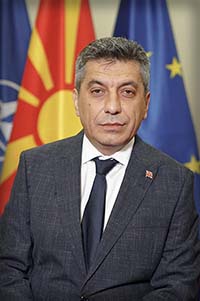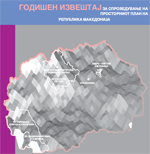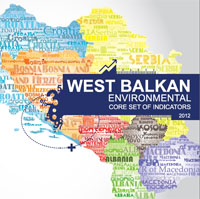(03.03.2015) “Europe’s environment and climate policies have delivered substantial benefits, improving the environment and quality of life, while driving innovation, job creation and growth. Despite these gains, Europe still faces a range of persistent and growing environmental challenges. Addressing them will require fundamental changes in the systems of production and consumption that are the root cause of environmental problems.
These are some of the key messages contained in the five-yearly assessment of the state of environment (SOER 2015) of the European Environment Agency (EEA), published today in the 39 countries of the Eionet, including the Republic of Macedonia.
SOER is a key integrated document of the state of the environment in Europe submitted byЕЕАto the European Parliament.
SOER 2015, titled ‘The European environment – state and outlook 2015’ contains information of the environment in Europe, assessments of global environment, comparative analyses of countries through environmental indicators and country and region specific reports.
All the above provides solid basis and invaluable tool for future national, European and even global environmental policies.
SOER 2015 highlights the need for more ambitious policies to achieve Europe’s 2050 vision. It also stresses the need for new approaches that respond to the systemic nature of many environmental problems. For example, external pressures, including global megatrends, can counteract specific policies and local environmental management efforts. In addition, many environmental challenges are closely linked to systems of production and consumption that support numerous jobs and livelihoods and changes to these systems create diverse costs and benefits. Moreover, efficiency improvements are often negated by increased consumption.
The report concludes that although full implementation of existing policies will be essential, neither the environmental policies currently in place, nor economic and technology-driven efficiency gains, will be sufficient to achieve Europe’s 2050 vision.
Addressing the complex challenges facing Europe will require more ambitious policies, alongside better knowledge and smarter investments, aimed at fundamentally transforming key systems such as food, energy, housing, transport, finance, health and education. It will necessitate strategies and approaches aimed at mitigating pressures and avoiding potential harm, restoring ecosystems, correcting socio-economic inequities, and adapting to global trends such as climate change and resource depletion.
Republic of Macedonia, through Macedonian Environmental Information Centre (MEIC) of the Ministry of Environment and Physical Planning, in the frames of EIONET, has taken active participation in the process of SOER 2015 development.
It is of particular importance to us that Part 4 of SOER 2015 includes the National Chapter on the Republic of Macedonia – Country briefing, with specific overview of the state of the environment in our country. The national chapter may be reached through the EEA web site (www.eea.europa.eu/soer) and Ministry’s (www.moepp.gov.mk).
Data used for the development of the Report was previously delivered to EEA as priority data flow and regular annual reporting by MEIC. We should mention that in certain cases, though we are not EU Member State, we do respond to the requirements of certain Directives and Conventions and this will facilitate the process of environmental reporting required with the membership in the EU. We also regard very important the fact that, under Part 3 of the Report, MEIC delivered relevant data for all 9 Environmental Indicators, thus enabling the state of the environment in Macedonia to be comparable with other European countries and countries in the region. It is a positive fact that, although the environment in Macedonia is under threat under certain indicators compared to other countries, it is much better under other indicators compared even to some developed European countries.
– ‘Our analysis shows that European policies have successfully tackled many environmental challenges over the years. But it also shows that we continue to harm the natural systems that sustain our prosperity. While living within planetary limits is an immense challenge, there are huge benefits in responding to it. Fully using Europe’s capacity to innovate could make us truly sustainable and put us at the frontier of science and technology, creating new industries and a healthier society.…………We have 35 years to ensure that we live on a sustainable planet by 2050. This may seem like a distant future, but to achieve our goal, we need to act now. We need our actions and investments to be even more ambitious and more coherent. Many of the decisions we make today will determine how we are going to live in 2050.’- is the message of Hans Bruyninckx, EEA Executive Director made on today’s press-conference organized on the occasion of the launch of SOER 2015 in the Press Centre of the European Commission in Brussels.





































































